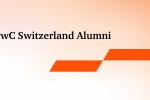Users of SAP Global Trade Services (GTS) and the e-dec export functionality for self-filing of customs export declarations must be aware that the Swiss customs authority is replacing the e-dec customs declaration system with the Passar system as part of its DaziT programme (customs transformation): DaziT and Passar.
Key dates
Please pay careful attention to the timeline below, as several events related to the Swiss customs systems and SAP GTS will occur within a short timeframe leaving only a narrow window for remediation or options that need to be implemented in sequence (Passar implementation and GTS E4H 2023/2025 migration). For companies using SAP GTS, non-adherence could lead to export disruptions and unforeseen costs.
- 31.07.2025: Release of Passar 1.0 (export) upgrade by SAP for SAP GTS 11/E4H 2020/E4H2023 (E4H = Edition for HANA).
- 24 - 28.11.2025: Planned release of SAP GTS E4H 2025 - New SAP GTS version including Passar 1.0
- 31.12.2025: Decommissioning of e-dec export by the Swiss customs authority – all export declarations will need to be made via Passar 1.0 (export). No extension by Swiss customs is anticipated, although it is still a remote possibility. Declarations initiated in e-dec must be completed in e-dec. No data transfer is possible between e-dec and Passar.
- 31.12.2025: End of maintenance for SAP GTS 11/E4H 2020. No extension by SAP is anticipated.
Dual challenge: Passar implementation and SAP GTS E4H migration
Companies currently using SAP GTS and e-dec to export and intend to use GTS to manage their exports with Passar 1.0 need to assess the distinct options available to them. One certainty is that companies will only have five months to implement Passar, whether on SAP GTS 11 or E4H 202x. This corresponds to the timeframe from the release of the Passar solution by SAP (August 2025) to the decommissioning of e-dec by Swiss customs (1 January 2026). There will also be process adjustments requiring change management, for example, the new requirement for separate notification of customs declarations by the declarant and notification of border crossing by the carrier of the goods (Activ app).
Also remember that the end of maintenance for SAP GTS 11/E4H 2020 is set for the end of 2025 and that even if you have implemented Passar on these platforms, you will no longer receive SAP "legal changes" as of 2026. This implies that these versions are not sustainable in the long term.
As for the migration to SAP GTS E4H, companies that have not yet initiated this process are advised to consider migrating to the 2025 version (current is 2023) planned for release by SAP for the end of November 2025.
Typically, one of the following options should guide you in determining the best approach for your company:
- Upgrade to Passar on GTS 11/E4H 2020: This is the easiest option as GTS 11/E4H 2020 will continue to operate in 2026. However, SAP notes for "legal changes" (e.g. Passar) will no longer be available as of 2026.
- Upgrade to Passar on GTS E4H 2023: This is the best option but assumes you have already migrated to GTS E4H 2023.
- Migrate to SAP GTS E4H 2023 and then upgrade to Passar: This is a more sustainable option (if you have not yet migrated), but the timeframe before the decommissioning of e-dec (31.12.2025) is short.
- A hybrid approach, first upgrading to Passar 1.0 in GTS 11/E4H 2020, followed by a migration to GTS E4H 2023/2025 that would extend into 2026, could be worth considering.
Technical and administrative considerations
Prerequisites for Passar implementation: For Passar with SAP GTS, prerequisites are version 6.7 of the Seeburger Business Integration Server (BIS) and bi-directional web services between GTS and the BIS. You can find more details here: PwC GTS blog.
For all SAP GTS releases (11.0, E4H 2020, and E4H 2023), it is advisable to install the relevant latest support package (SP) (25, 08, and 05 respectively). With GTS at these SP levels, you can expect about 20+ SAP notes on Passar (SAP source). Earlier SP versions will require additional notes.
Registration for Passar with FOCBS: You must in all cases register for Passar with the Federal Office for Customs and Border Protection (FOCBS). We recommend you do this immediately if you have not done so already, as the complete onboarding procedure can take some time due to limited capacity – especially as we approach the end of the year when an influx of last-minute registrations is expected. You can find the details for registration here: Onboarding for Passar.
Prerequisites for the migration to GTS E4H: SAP GTS 11 and E4H 202x work with both SAP ECC and S/4HANA feeder systems. A new SAP GTS licence is required for the E4H systems, and technically an SAP HANA database and an SAP FIORI interface.
SAP GTS cloud solutions: Subscribing to the SAP RISE (cloud) program allows for the outsourcing of some technical installation and maintenance obligations of your SAP GTS E4H solution. PwC also proposes a PwC-own SAP GTS cloud offering, which extends the SAP RISE base with trade data content, the Seeburger BIS and application support. This is particularly suitable for SMEs wishing to use GTS on a SaaS basis.
How can PwC support you?
PwC is committed to supporting SAP GTS, both in Switzerland and abroad. We have a privileged alliance with SAP (platinum partner) and offer a wide range of SAP GTS services, including PwC’s SAP GTS partner-managed cloud (PMC).
For Passar, our Swiss PwC SAP GTS team uses its extensive e-dec experience to full advantage by offering comprehensive implementation services, which include system analysis, Passar configuration on SAP GTS and process implementation, as well as testing, training, documentation creation, production deployment and dedicated hypercare support. Following implementation, we provide ongoing assistance through our recognised expert helpdesk, timely regulatory updates and proactive lifecycle management, ensuring seamless Passar integration and reliable operation.
To continue your electronic Customs & Trade journey with SAP GTS, contact us as soon as possible so that we can develop and plan the right approach for you.







